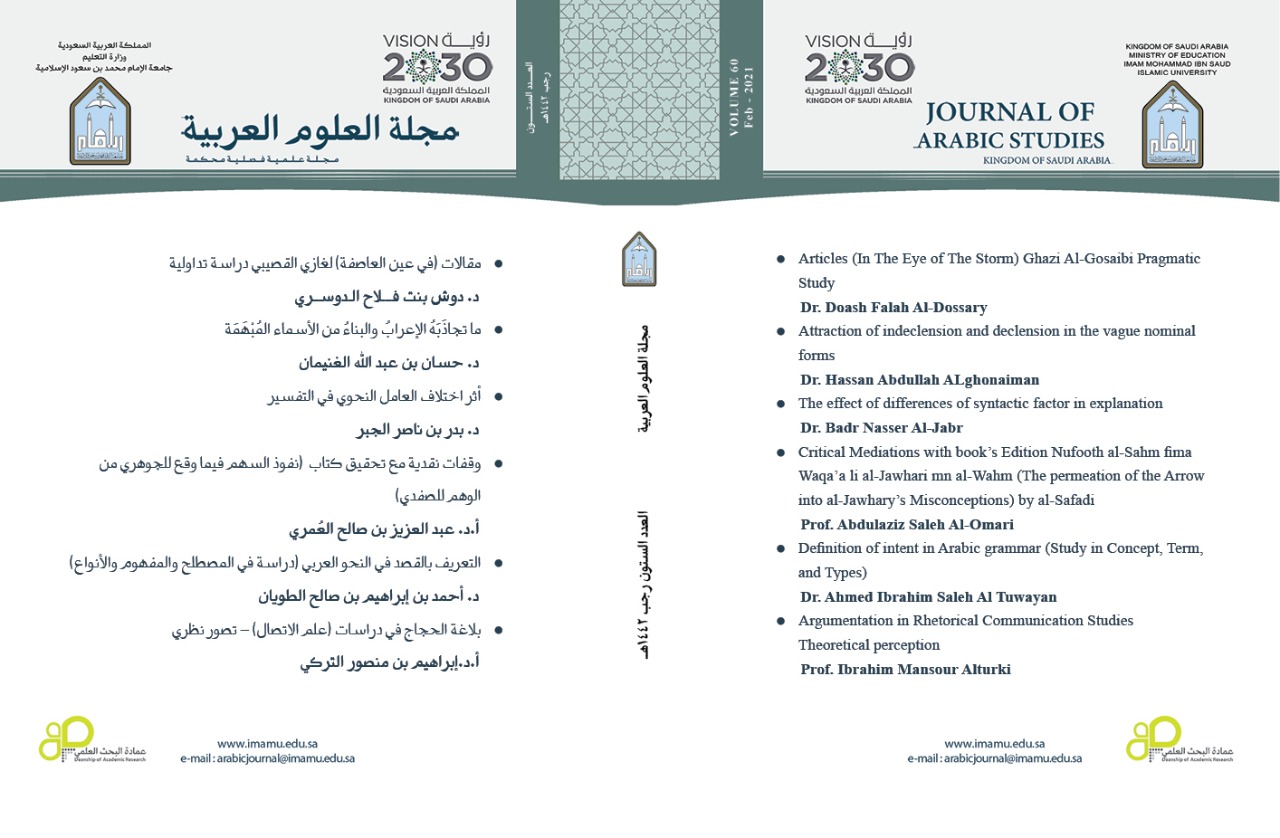Attraction of indeclension and declension in the vague nominal forms
Keywords:
Usage, Declension, Noun, Vagueness, StaticAbstract
Vague nouns are interrogative pronouns and demonstrative pronouns. These nouns are unanimously known as static nouns due to their similarity to particles in terms of projection, sense, and the need for other elements in a sentence to illustrate their meaning like all the cases of particles.
During their collecting date of the Arabs’ speech, early scholars observed that the dual of the vague demonstrative pronouns like dhān and wa-lladhān and other nouns like alladhīn and wallaᵓīn has originated to be constructed. That trend made between scholars a controversy saying such two contradictory statements. Most of the scholars said that demonstrative pronouns are in declension; they provide logical proofs and oral examples from Arabic. Others claimed that they are constructed, proved by some anciently formulated examples within the history of Arabic resources. Ibn Kaysān and Ibn Taymiyya -may Allah bless them- have a particular statement, saying that the dual of the vague names is an in indeclension, formed inflectionally with the end /ā/. They supported such a claim with evidence, but it was rejected due to being irregular to the axiom known between the grammarians.
For the sake of simplifying the grammar teaching, some early scholars said in their textbooks that the vague dual and some plurals of the relative clauses are inflectionally dynamics, even though they considered them as static nouns in their other books.




